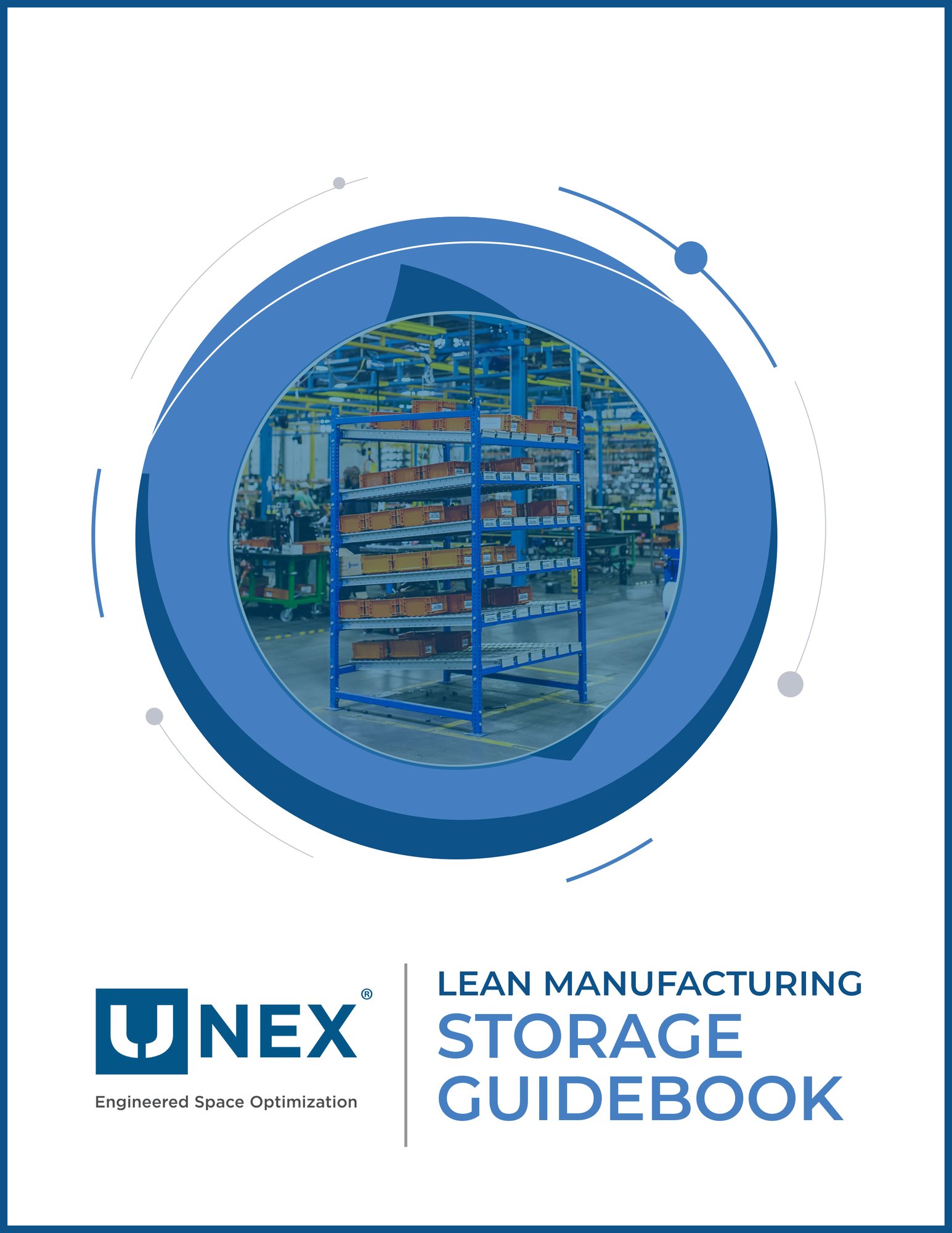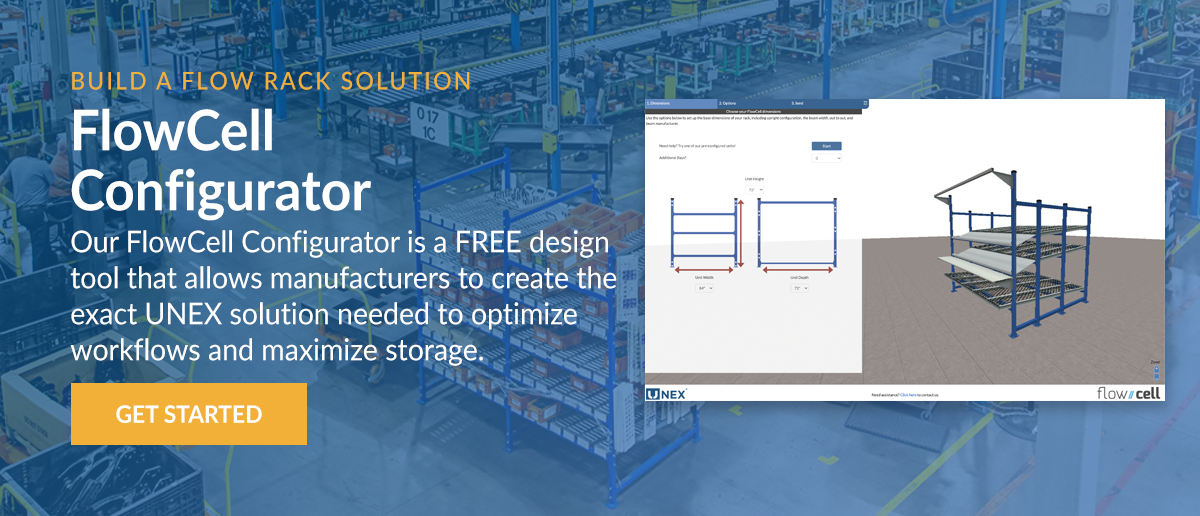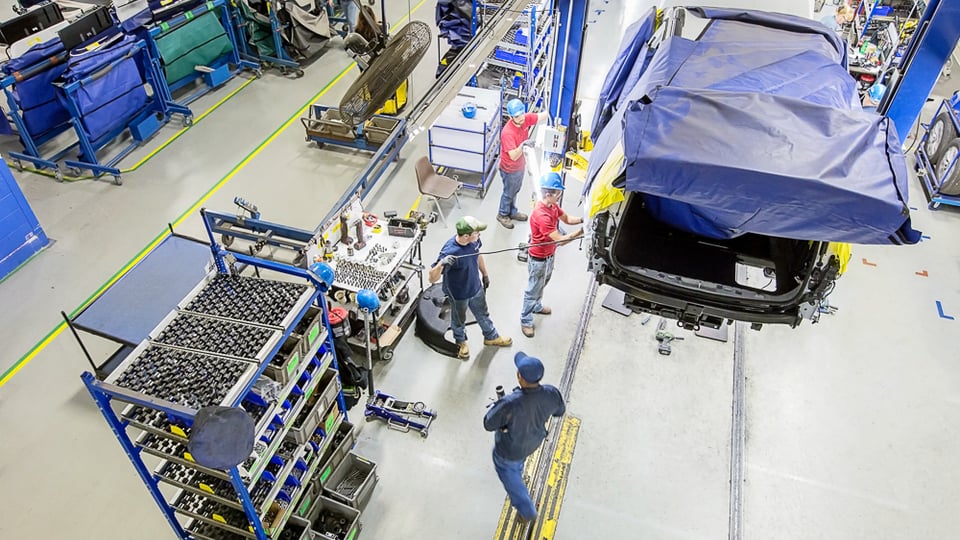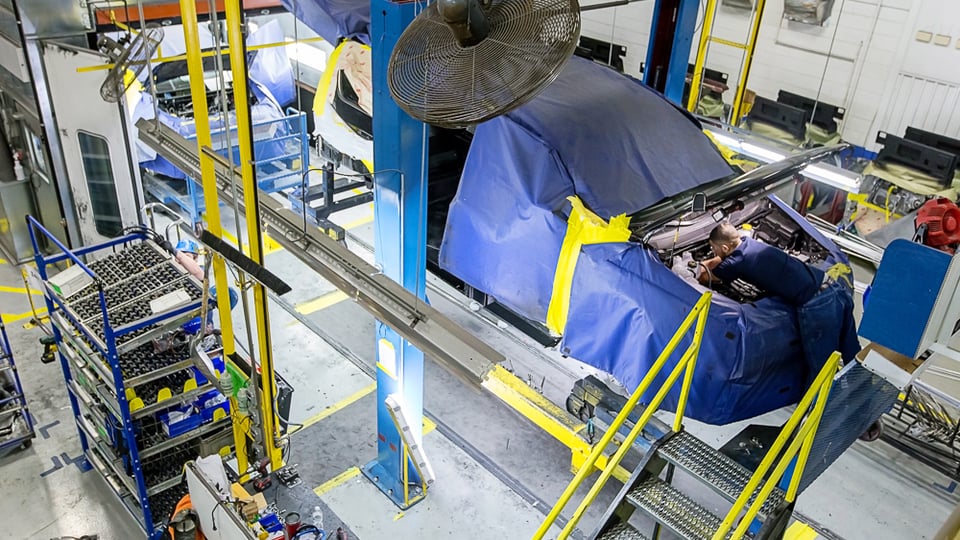Lean Manufacturing 101

Lean manufacturing isn’t just a set of tools, it’s a mindset. It’s about building smarter systems that create value while cutting out what doesn’t. The idea is simple: maximize output and efficiency without adding cost, complexity, or waste.
The concept originated from the Toyota Production System (TPS) in the 20th century and has since become the gold standard for operational excellence across industries. From lineside assembly to eCommerce fulfillment, lean principles help organizations reduce waste, improve flow, and empower their teams to work more effectively.
Understanding lean is the first step. Applying it to the day-to-day realities of production is where transformation happens.
The Core Idea: Value and Waste
Every process can be divided into two categories: value-adding and non–value-adding activities. Lean manufacturing focuses on identifying and reducing the latter, creating a system that's known as the Seven Wastes (Muda):
- Overproduction
- Inventory
- Waiting
- Motion
- Transportation
- Rework
- Overprocessing
The goal is simple: ensure that every step in the process contributes directly to customer value. The less waste in your system, the more efficient, profitable, and predictable your operations become.
Building a Foundation: The 5S System

A cornerstone of lean manufacturing, 5S is all about workplace organization and standardization. The idea is to make inefficiency visible and then eliminate it.
- Seiri (Sort): Remove what’s unnecessary
- Seiton (Set in Order): Organize for easy access
- Seiso (Shine): Keep the workspace clean
- Seiketsu (Standardize): Maintain consistency
- Shitsuke (Sustain): Build habits of discipline
This system creates the kind of environment where continuous improvement can thrive. Organized, labeled, and standardized workstations minimize motion waste and reduce time spent searching for tools or parts, leading to faster, safer, and more efficient operations.
Modern facilities use tools like dynamic storage, carton flow, and ergonomic workstations to put 5S into practice, creating a visual, structured workflow where every part has its place and purpose.
The Lean Manufacturing Dictionary
Lean manufacturing comes with its own language, a mix of Japanese terms, acronyms, and systems that can feel overwhelming at first. To make it easier, we’ve compiled a quick-reference “dictionary” of the most common lean concepts and tools.
Each term plays a role in building more efficient, organized, and reliable operations. Together, they form the foundation of a truly lean facility.
Kaizen means continuous improvement and relies on employees at every level to identify opportunities for positive change. It encourages collaboration between teams, empowering those closest to the work to suggest improvements that enhance efficiency, safety, and quality. When applied consistently, Kaizen creates a culture where innovation becomes part of the daily routine.
Kanban means visual cards used to control the flow of goods, adjust inventory or production levels, or communicate tasks. Kanban is used to reduce waste by improving supply chains efficiency in manufacturing.

Total Productive Maintenance (TPM) offers 8 pillars for proactively managing preventative maintenance, helping to keep machinery in top shape to avoid delays in the manufacturing process.
Andon is a system for notifying management about a problem. Workers are empowered to stop production for defects and immediately call for assistance. Typically Andon involves a combination of lights or sounds to communicate the status.
Heijunka means lean production system leveling and is used to reduce Mura (unevenness), which reduces Muda (waste). The goal is to produce intermediate goods at a constant rate so that further processing may also be carried out at a constant and predictable rate. It also keeps levels of inventory down.
Gemba means "The Real Place," and encourages management to do the "Gemba Walk" — to walk around the facility and encounter employees at their workplace. It helps managers learn about any ongoing issues first-hand.
Hoshin Kanri means "compass management," but is a way for strategic corporate goals to be communicated throughout a company and then put into action. It is a big picture, top-down approach that ensures workers' tasks contribute directly to the company's broader goals.
Ishikawa Diagrams are cause-and-effect diagrams that help identify the root cause of inefficiency or problem in the plant using "5 whys" to find the answer.
Muda means unevenness or wastefulness. The goal of Lean is to reduce waste. The seven wastes of lean manufacturing are overproduction, inventory, waiting, motion, transportation, rework, and overprocessing. With less waste, businesses are more productive, efficient, and profitable.

Overall Equipment Effectiveness (OEE) means to evaluate the effectiveness of a manufacturing operation or machine. OEE measurement is typical with key performance indicators (KPIs) that analyze downtime, performance, and output quality.
Plan, Do Check, Act (PDCA) is a standardized framework for problem-solving and improving efficiency. It is an iterative four-step management method used in business for the control and continual improvement of processes and products. It is also known as the Deming Circle.
Standardized Work means creating and implementing best practices for an organization or process to make the business more efficient.
Visual Factory means visually displaying information to workers, so they increase productivity and efficiency. This technique is part of the Pick-to-Light solution where lights tell order pickers what products to select to fill an order.
Cellular Manufacturing or "one-piece flow" or U-Shaped Cells is a lean methodology encompassing the movement of a single product through the manufacturing process. One-piece flow redirects the workforce away from non-value-added activities, such as having to search for parts and focusing on the manufacturing process.
Bottleneck Analysis is a way to uncover bottlenecks or barriers in the production process and develop methods that remove the particular issue causing the problem.
ABC Analysis is an inventory categorization technique that ranks products in one of 3 categories: "A" items are the most important to the organization; "B" items are less important, and "C" items are the least important. The ABC analysis provides a mechanism for identifying items that have a significant impact on overall inventory cost.
Continuous Flow Manufacturing entails running manufacturing processes with minimal disruption and little downtime. The goal is an optimally balanced lean production line with little waste, the lowest possible cost, on-time, and defect-free production.
Learn lean manufacturing storage principles. Download the Lean Manufacturing Storage Guidebook!

Jidoka means intelligent automation and empowers workers to shut down a machine or stop production if there is a problem without waiting on a manager's permission. It involves 4 processes: detect a problem, stop systems, fix the problem, investigate the root cause.
Just-In-Time is a manufacturing methodology where raw materials, parts, or components arrive at a manufacturing step "just-in-time" for the process to occur. With just-in-time manufacturing, items are made in response to actual demand to minimize storage and excess inventory.
Key Performance Indicators (KPI) are a measurement technique for tracking progress in continuous improvement. KPIs must be clearly-defined, continually measured, and analyzed for progress.
Level Loading is a technique where goods are produced at a steady, constant rate so that the manufacturing process is balanced. With level loading, inventory levels are kept low, and efficiencies are improved.
Mind Maps are diagrams used to visually organize information, showing relationships among various ideas that are all connected to a central concept. For problem-solving or to uncover new opportunities, use mind maps.
Poka-Yoke means mistake-proofing and is a mechanism for avoiding mistakes in the manufacturing process and preventing defects. Poke-Yoke prevents defects in the production process and cuts down on rework.
6 Big Losses identify and plan for the six most common productivity losses, which include unplanned stops, planned stops, small stops, slow cycles, production rejects, and startup rejects.
Single Minute Exchange of Die (SMED) is a lean production method for reducing waste in the manufacturing process. It provides a fast and efficient way of converting a manufacturing process from running the current product to running the next product. The changeover needs to take place in less than 10 minutes.
Takt Time is the average time between the start of production of one unit and the start of production of the next unit.

SMART Goals mean Specific, Measurable, Attainable, Relevant, or Results-Focused, and Time-Specific goals that help improve worker productivity, time management, and efficiency.
Value Stream Mapping is a lean-management method for analyzing the current state and designing a future state for the series of events that take a product or service from its beginning through to the customer. Analysts look at the visual map and find areas of waste or bottlenecks.
No Defects is a methodology for eliminating all defects in the manufacturing process. It is a proactive approach for uncovering defects and finding solutions to eliminate them.
Bringing Lean Manufacturing to Life
Lean manufacturing is more than a methodology; it’s a mindset that shapes how organizations think, work, and grow. When the focus shifts from doing more to doing better, every part of the operation starts to align: leadership decisions, shop floor activities, and even the way space is used.
Applied consistently, lean principles do more than eliminate waste. They create a culture of continuous improvement, one that values precision, accountability, and innovation. Facilities become not just more efficient, but more adaptable and able to respond to change with confidence and clarity.
Modern tools and systems, such as modular workstations, dynamic storage, and ergonomic flow designs, make these principles tangible. They transform lean from a philosophy into a daily practice, one that scales across teams, processes, and facilities.
Contact UNEX today to connect with a storage optimization expert and learn how lean manufacturing solutions can help your facility operate smarter, leaner, and more efficiently.



